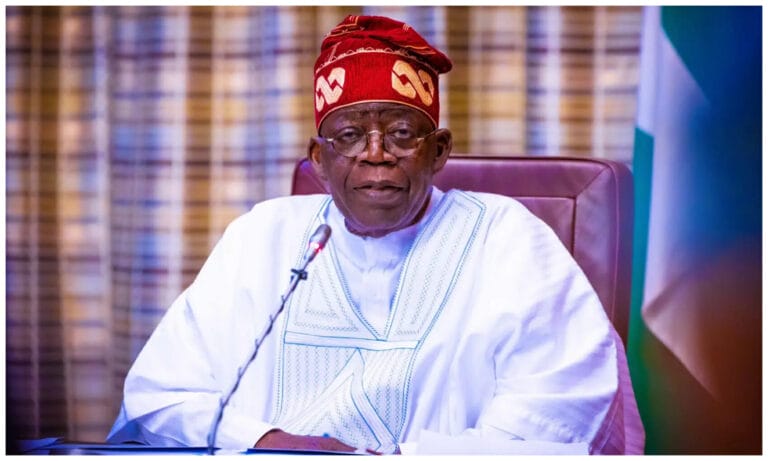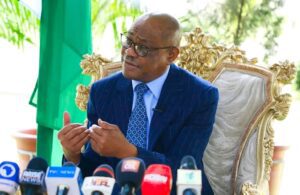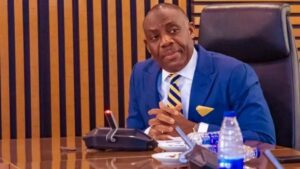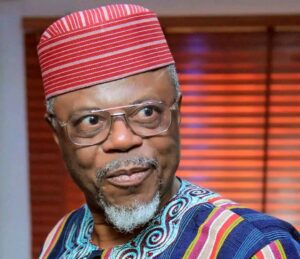Tell Tinubu The Truth, Not What He Hears In Villa – Fayemi Begs Ganduje

A former governor of Ekiti State, Dr Kayode Fayemi, has asked the National Chairman of the All Progressives Congress (APC), Dr Abdullahi Umar Ganduje, to tell President Bola Ahmed Tinubu, the true state of affairs and the feedback from various communities, not the information he gets in the villa.
Fayemi, a former chairman of the Nigeria Governors’ Forum (NGF), made the appeal during the public launch of a book titled, ‘APC and transition politics’ authored by a former national vice chairman (North West) of the APC, Salihu Mohammed Lukman, on Tuesday in Abuja.
The event attracted prominent leaders of the APC including Ganduje, former APC national chairmen, Adams Oshiomhole and Chief Bisi Akande, representatives of from former Vice President, Prof. Yemi Osinbajo and that of the Speaker of the House of Representatives, Tajuddeen Abbas, National Working Committee (NWC) members, and many others.
READ ALSO: PDP Chair: Wike And Others To Face Sanctions In Due Course
Fayemi said, “I am happy that our chairman is here. This is the party that should not be a spectator in policy making. This party should be the one to project the manifesto of the party. This party should be the one to tell Mr. President that this is the feedback from the communities and constituencies out there, not what he is hearing in the villa where he is locked up.
“All of us have occupied public office and we know how it can be. I am happy our chairman has confirmed he has read the book. It should be a compulsory read for all members of the NWC and executives at the state and ward levels so that we can begin the rebuilding process of our organic party to which I believe Dr Abdullahi Umar Ganduje is committed.”
In his remarks, Ganduje said the APC needs to be well-structured and repositioned to serve the interest of the masses.
He said, “It is important to document issues. APC as a political party is the ruling party. It is an institution which should be well-structured and repositioned whereby it serves a two-way traffic – first, as an institution that is in charge of recruitment of appointive and elective officials and also as an institution that is concerned about the implementation of the party’s manifesto from the ward level to the national level.
“And it is an institution that must answer to the demands of the people in order to be transmitted to the ruling government for implementation. At the same time, it is an institution that will explain and enlighten members of the public about the achievements of the ruling government.”






